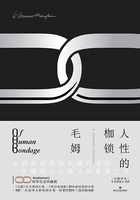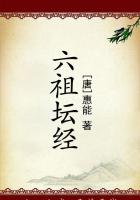On Sunday Clifford wanted to go into the wood. It was a lovelymorning, the pear-blossom and plum had suddenly appeared in the world in a wonder of white here and there.
It was cruel for Clifford, while the world bloomed, to have to be helped from chair to bath-chair. But he had forgotten, and even seemed to have a certain conceit of himself in his lameness.Connie still suffered, having to lift his inert legs into place.Mrs Bolton did it now, or Field.
She waited for him at the top of the drive, at the edge of the screen of beeches. His chair came puffing along with a sort of valetudinarian slow importance.As he joined his wife he said:
'Sir Clifford on his roaming steed!'
'Snorting, at least!'she laughed.
He stopped and looked round at the facade of the long, low old brown house.
'Wragby doesn't wink an eyelid!'he said.'But then why should it!I ride upon the achievements of the mind of man, and that beats a horse.'
'I suppose it does. And the souls in Plato riding up to heaven in a two-horse chariot would go in a Ford car now, 'she said.
'Or a Rolls-Royce:Plato was an aristocrat!'
'Quite!No more black horse to thrash and maltreat. Plato never thought we'd go one better than his black steed and his white steed, and have no steeds at all, only an engine!'
'Only an engine and gas!'said Clifford.
'I hope I can have some repairs done to the old place next year. I think I shall have about a thousand to spare for that:but work costs so much!'he added.
'Oh, good!'said Connie.'If only there aren't more strikes!'
'What would be the use of their striking again!Merely ruin the industry, what's left of it:and surely the owls are beginning to see it!'
'Perhaps they don't mind ruining the industry, 'said Connie.
'Ah, don't talk like a woman!The industry fills their bellies, even if it can't keep their pockets quite so flush, 'he said, using turns of speech that oddly had a twang of Mrs Bolton.
'But didn't you say the other day that you were a conservative-anarchist, 'she asked innocently.
'And did you understand what I meant?'he retorted.'All I meant is, people can be what they like and feel what they like and do what they like, strictly privately, so long as they keep the form of life intact, and the apparatus.'
Connie walked on in silence a few paces. Then she said, obstinately:
'It sounds like saying an egg may go as addled as it likes, so long as it keeps its shell on whole. But addled eggs do break of themselves.'
'I don't think people are eggs, 'he said.'Not even angels'eggs, my dear little evangelist.'
He was in rather high feather this bright morning. The larks were trilling away over the park, the distant pit in the hollow was fuming silent steam.It was almost like old days, before the war.Connie didn't really want to argue.But then she did not really want to go to the wood with Clifford either.So she walked beside his chair in a certain obstinacy of spirit.
'No, 'he said.'There will be no more strikes, it. The thing is properly managed.'
'Why not?'
'Because strikes will be made as good as impossible.'
'But will the men let you?'she asked.
'We shan't ask them. We shall do it while they aren't looking:for their own good, to save the industry.'
'For your own good too, 'she said.
'Naturally!For the good of everybody. But for their good even more than mine.I can live without the pits.They can't.They'll starve if there are no pits.I've got other provision.'
They looked up the shallow valley at the mine, and beyond it, at the black-lidded houses of Tevershall crawling like some serpent up the hill. From the old brown church the bells were ringing:Sunday, Sunday, Sunday!
'But will the men let you dictate terms?'she said.'My dear, they will have to:if one does it gently.'
'But mightn't there be a mutual understanding?'
'Absolutely:when they realize that the industry comes before the individual.'
'But must you own the industry?'she said.
'I don't. But to the extent I do own it, yes, most decidedly.The ownership of property has now become a religious question:as it has been since Jesus and St Francis.The point is not:take all thou hast and give to the poor, but use all thou hast to encourage the industry and give work to the poor.It's the only way to feed all the mouths and clothe all the bodies.Giving away all we have to the poor spells starvation for the poor just as much as for us.And universal starvation is no high aim.Even general poverty is no lovely thing.Poverty is ugly.'
'But the disparity?'
'That is fate. Why is the star Jupiter bigger than the star Neptune?You can't start altering the make-up of things!'
'But when this envy and jealousy and discontent has once started, 'she began.
'Do, your best to stop it. Somebody's got to be boss of the show.'
'But who is boss of the show?'she asked.
'The men who own and run the industries.'
There was a long silence.
'It seems to me they're a bad boss, 'she said.
'Then you suggest what they should do.'
'They don't take their boss-ship seriously enough, 'she said.
'They take it far more seriously than you take your ladyship, 'he said.
'That's thrust upon me. I don't really want it, 'she blurted out.He stopped the chair and looked at her.
'Who's shirking their responsibility now!'he said.'Who is trying to getaway now from the responsibility of their own boss-ship, as you call it?'
'But I don't want any boss-ship, 'she protested.
'Ah!But that is funk. You've got it:fated to it.And you should live up to it.Who has given the colliers all they have that's worth having:all their political liberty, and their education, such as it is, their sanitation, their health-conditions, their books, their music, everything.Who has given it them?Have colliers given it to colliers?No!All the Wragbys and Shipleys in England have given their part, and must go on giving.There's your responsibility.'
Connie listened, and flushed very red.
'I'd like to give something, 'she said.'But I'm not allowed. Everything is to be sold and paid for now; and all the things you mention now, Wragby and Shipley sells them to the people, at a good prof it.Everything is sold.You don't give one heart-beat of real sympathy.And besides, who has taken away from the people their natural life and manhood, and given them this industrial horror?Who has done that?'
'And what must I do?'he asked, green.'Ask them to come and pillage me?'
'Why is Tevershall so ugly, so hideous?Why are their lives so hopeless?'
'They built their own Tevershall, that's part of their display of freedom. They built themselves their pretty Tevershall, and they live their own pretty lives.I can't live their lives for them.Every beetle must live its own life.'
'But you make them work for you. They live the life of your coal-mine.'
'Not at all. Every beetle finds its own food.Not one man is forced to work for me.
'Their lives are industrialized and hopeless, and so are ours, 'she cried.
'I don't think they are. That's just a romantic figure of speech, a relic of the swooning and die-away romanticism.You don't look at all a hopeless figure standing there, Connie my dear.'
Which was true. For her dark-blue eyes were flashing, her colour was hot in her cheeks, she looked full of a rebellious passion far from the dejection of hopelessness.She noticed, ill the tussocky places of the grass, cottony young cowslips standing up still bleared in their down.And she wondered with rage, why it was she felt Clifford was so wrong, yet she couldn't say it to him, shecould not say exactly where he was wrong.
'No wonder the men hate you, 'she said.
'They don't!'he replied.'And don't fall into errors:in your sense of the word, they are not men. They are animals you don't understand, and never could.Don't thrust your illusions on other people.The masses were always the same, and will always be the same.Nero's slaves were extremely little different from our colliers or the Ford motor-car workmen.I mean Nero's mine slaves and his field slaves.It is the masses:they are the unchangeable.An individual may emerge from the masses.But the emergence doesn't alter the mass.The masses are unalterable.It is one of the most momentous facts of social science.Panem et circenses!Only today education is one of the bad substitutes for a circus.What is wrong today is that we've made a profound hash of the circuses part of the programme, and poisoned our masses with a little education.'
When Clifford became really roused in his feelings about the common people, Connie was frightened. There was something devastatingly true in what he said.But it was a truth that killed.
Seeing her pale and silent, Clifford started the chair again, and no more was said till he halted again at the wood gate, which she opened.
'And what we need to take up now, 'he said, 'is whips, not swords. The masses have been ruled since time began, and till time ends, ruled they will have to be.It is sheer hypocrisy and farce to say they can rule themselves.'
'But can you rule them?'she asked.
'I?Oh yes!Neither my mind nor my will is crippled, and I don't rule with my legs. I can do my share of ruling:absolutely, my share; and give me a son, and he will be able to rule his portion after me.'
'But he wouldn't be your own son, of your own ruling class; or perhaps not, 'she stammered.
'I don't care who his father may be, so long as he is a healthy man not below normal intelligence. Give me the child of any healthy, normally intelligent man, and I will make a perfectly competent Chatterley of him.It is not who begets us, that matters, but where fate places us.Place any child among the ruling classes, and he will grow up, to his own extent, a ruler.Put kings'and dukes'children among the masses, and they'll be little plebeians, mass products.It is the overwhelming pressure of environment.'
'Then the common people aren't a race, and the aristocrats aren't blood, 'she said.
'No, my child!All that is romantic illusion. Aristocracy is a function, a part of fate.And the masses are a functioning of another part of fate.The individual hardly matters.It is a question of which function you are brought up to and adapted to.It is not the individuals that make an aristocracy:it is the functioning of the aristocratic whole.And it is the functioning of the whole mass that makes the common man what he is.'
'Then there is no common humanity between us all!'
'Just as you like. We all need to fill our bellies.But when it comes to expressive or executive functioning, I believe there is a gulf and an absolute one, between the ruling and the serving classes.The two functions are opposed.And the function determines the individual.'
Connie looked at him with dazed eyes.
'Won't you come on?'she said.
And he started his chair. He had said his say.Now he lapsed into his peculiar and rather vacant apathy, that Connie found so trying.In the wood, anyhow, she was determined not to argue.
In front of them ran the open cleft of the riding, between the hazel walls and the gay grey trees. The chair puffed slowly on, slowly surging into the forget-me-nots that rose up in the drive like milk froth, beyond the hazel shadows.Clifford steered the middle course, where feet passing had kept a channel through the flowers.But Connie, walking behind, had watched the wheels jolt over the wood-ruff and the bugle, and squash the little yellow cups of the creeping-jenny.Now they made a wake through the forget-me-nots.
All the flowers were there, the first bluebells in blue pools, like standing water.
'You are quite right about its being beautiful, 'said Clifford.'It is so amazingly. What is quite so lovely as an English spring!'
Connie thought it sounded as if even the spring bloomed by act of Parliament. An English spring!Why not an Irish one?or Jewish?The chair moved slowly ahead, past tufts of sturdy bluebells that stood up like wheat andover grey burdock leaves.When they came to the open place where the trees had been felled, the light flooded in rather stark.And the bluebells made sheets of bright blue colour, here and there, sheering off into lilac and purple.And between, the bracken was lifting its brown curled heads, like legions of young snakes with a new secret to whisper to Eve.Clifford kept the chair going till he came to the brow of the hill; Connie followed slowly behind.The oak-buds were opening soft and brown.Everything came tenderly out of the old hardness.Even the snaggy craggy oak-trees put out the softest young leaves, spreading thin, brown little wings like young bat-wings in the light.Why had men never any newness in them, any freshness to come forth with!Stale men!
Clifford stopped the chair at the top of the rise and looked down. The bluebells washed blue like flood-water over the broad riding, and lit up the downhill with a warm blueness.
'It's a very fine colour in itself, 'said Clifford, 'but useless for making a painting.'
'Quite!'said Connie, completely uninterested.
'Shall I venture as far as the spring?'said Clifford.
'Will the chair get up again?'she said.
'We'll try; nothing venture, nothing win!'
And the chair began to advance slowly, joltingly down the beautiful broad riding washed over with blue encroaching hyacinths. O last of all ships, through the hyacinthian shallows!O pinnace on the last wild waters, sailing in the last voyage of our civilization!Whither, O weird wheeled ship, your slow course steering.Quiet and complacent, Clifford sat at the wheel of adventure:in his old black hat and tweed jacket, motionless and cautious.O Captain, my Captain, our splendid trip is done!Not yet though!Downhill, in the wake, came Constance in her grey dress, watching the chair jolt downwards.
They passed the narrow track to the hut. Thank heaven it was not wide enough for the chair:hardly wide enough for one person.The chair reached the bottom of the slope, and swerved round, to disappear.And Connie heard a low whistle behind her.She glanced sharply round:the keeper was striding downhill towards her, his dog keeping behind him.
'Is Sir Clifford going to the cottage?'he asked, looking into her eyes.
'No, only to the well.'
'Ah!Good!Then I can keep out of sight. But I shall see you tonight.I shall wait for you at the park-gate about ten.'
He looked again direct into her eyes.
'Yes, 'she faltered.
They heard the Papp!Papp!of Clifford's horn, tooting for Connie. She'Coo-eed!'in reply.The keeper's face flickered with a little grimace, and with his hand he softly brushed her breast upwards, from underneath.She looked at him, frightened, and started running down the hill, calling Coo-ee!again to Clifford.The man above watched her, then turned, grinning faintly, back into his path.
She found Clifford slowly mounting to the spring, which was halfway up the slope of the dark larch-wood. He was there by the time she caught him up.
'She did that all right, 'he said, referring to the chair.
Connie looked at the great grey leaves of burdock that grew out ghostly from the edge of the larch-wood. The people call it Robin Hood's Rhubarb.How silent and gloomy it seemed by the well!Yet the water bubbled so bright, wonderful!And there were bits of eye-bright and strong blue bugle…And there, under the bank, the yellow earth was moving.A mole!It emerged, rowing its pink hands, and waving its blind gimlet of a face, with the tiny pink nose-tip uplifted.
'It seems to see with the end of its nose, 'said Connie.
'Better than with its eyes!'he said.'Will you drink?'
'Will you?'
She took an enamel mug from a twig on a tree, and stooped to fill it for him. He drank in sips.Then she stooped again, and drank a little herself.
'So icy!'she said gasping.
'Good, isn't it!Did you wish?'
'Did you?'
'Yes, I wished. But I won't tell.'
She was aware of the rapping of a woodpecker, then of the wind, soft and eerie through the larches. She looked up.White clouds were crossing the blue.
'Clouds!'she said.
'White lambs only, 'he replied.
A shadow crossed the little clearing. The mole had swum out on to the soft yellow earth.
'Unpleasant little beast, we ought to kill him, 'said Clifford.
'Look!he's like a parson in a pulpit, 'she said.
She gathered some sprigs of woodruff and brought them to him.
'New-mown hay!'he said.'Doesn't it smell like the romantic ladies of the last century, who had their heads screwed on the right way after all!'
She was looking at the white clouds.
'I wonder if it will rain, 'she said.
'Rain!Why!Do you want it to?'
They started on the return journey, Clifford jolting cautiously downhill. They came to the dark bottom of the hollow, turned to the right, and after a hundred yards swerved up the foot of the long slope, where bluebells stood in the light.
'Now, old girl!'said Clifford, putting the chair to it.
It was a steep and jolty climb. The chair pugged slowly, in a struggling unwilling fashion.Still, she nosed her way up unevenly, till she came to where the hyacinths were all around her, then she balked, struggled, jerked a little way out of the flowers, then stopped.
'We'd better sound the horn and see if the keeper will come, 'said Connie.'He could push her a bit. For that matter, I will push.It helps.'
'We'll let her breathe, 'said Clifford.'Do you mind putting a scotch under the wheel?'
Connie found a stone, and they waited. After a while Clifford started his motor again, then set the chair in motion.It struggled and faltered like a sick thing, with curious noises.
'Let me push!'said Connie, coming up behind.
'No!Don't push!'he said angrily.'What's the good of the damned thing, if it has to be pushed!Put the stone under!'
There was another pause, then another start; but more ineffectual than before.
'You must let me push, 'said she.'Or sound the horn for the keeper.'
'Wait!'
She waited; and he had another try, doing more harm than good.
'Sound the horn then, if you won't let me push, 'she said.'Hell!Be quiet a moment!'
She was quiet a moment:he made shattering efforts with the little motor.
'You'll only break the thing down altogether, Clifford, 'she remonstrated; 'besides wasting your nervous energy.'
'If I could only get out and look at the damned thing!'he said, exasperated. And he sounded the horn stridently.'Perhaps Mellors can see what's wrong.'
They waited, among the mashed flowers under a sky softly curdling with cloud. In the silence a wood-pigeon began to coo roo-hoo hoo!roo-hoo hoo!Clifford shut her up with a blast on the horn.
The keeper appeared directly, striding inquiringly round the corner. He saluted.
'Do you know anything about motors?'asked Clifford sharply.
'I am afraid I don't. Has she gone wrong?'
'Apparently!'snapped Clifford.
The man crouched solicitously by the wheel, and peered at the little engine.
'I'm afraid I know nothing at all about these mechanical things, Sir Clifford, 'he said calmly.'If she has enough petrol and oil—'
'Just look carefully and see if you can see anything broken, 'snapped Clifford.
The man laid his gun against a tree, took oil his coat, and threw it beside it. The brown dog sat guard.Then he sat down on his heels and peered under the chair, poking with his finger at the greasy little engine, and resenting the grease-marks on his clean Sunday shirt.
'Doesn't seem anything broken, 'he said. And he stood up, pushing back his hat from his forehead, rubbing his brow and apparently studying.
'Have you looked at the rods underneath?'asked Clifford.'See if they are all right!'
The man lay flat on his stomach on the floor, his neck pressed back, wriggling under the engine and poking with his finger. Connie thought what apathetic sort of thing a man was, feeble and small-looking, when he was lying on his belly on the big earth.
'Seems all right as far as I can see, 'came his muffled voice.
'I don't suppose you can do anything, 'said Clifford.
'Seems as if I can't!'And he scrambled up and sat on his heels, collier fashion.'There's certainly nothing obviously broken.'
Clifford started his engine, then put her in gear. She would not move.
'Run her a bit hard, like, 'suggested the keeper.
Clifford resented the interference:but he made his engine buzz like a blue-bottle. Then she coughed and snarled and seemed to go better.
'Sounds as if she'd come clear, 'said Mellors.
But Clifford had already jerked her into gear. She gave a sick lurch and ebbed weakly forwards.
'If I give her a push, she'll do it, 'said the keeper, going behind.
'Keep off!'snapped Clifford.'She'll do it by herself.'
'But Clifford!'put in Connie from the bank, 'you know it's too much for her. Why are you so obstinate!'
Clifford was pale with anger. He jabbed at his levers.The chair gave a sort of scurry, reeled on a few more yards, and came to her end amid a particularly promising patch of bluebells.
'She's done!'said the keeper.'Not power enough.'
'She's been up here before, 'said Clifford coldly.
'She won't do it this time, 'said the keeper.
Clifford did not reply. He began doing things with his engine, running her fast and slow as if to get some sort of tune out of her.The wood re-echoed with weird noises.Then he put her in gear with a jerk, having jerked off his brake.
'You'll rip her inside out, 'murmured the keeper.
The chair charged in a sick lurch sideways at the ditch.
'Clifford!'cried Connie, rushing forward.
But the keeper had got the chair by the rail. Clifford, however, putting on all his pressure, managed to steer into the riding, and with a strange noise the chair was fighting the hill.Mellors pushed steadily behind, and up she went, as if to retrieve herself.
'You see, she's doing it!'said Clifford, victorious, glancing over his shoulder. There he saw the keeper's face.
'Are you pushing her?'
'She won't do it without.'
'Leave her alone. I asked you not.
'She won't do it.'
'let her try!'snarled Clifford, with all his emphasis.
The keeper stood back:then turned to fetch his coat and gun. The chair seemed to strange immediately.She stood inert.Clifford, seated a prisoner, was white with vexation.He jerked at the levers with his hand, his feet were no good.He got queer noises out of her.In savage impatience he moved little handles and got more noises out of her.But she would not budge.No, she would not budge.He stopped the engine and sat rigid with anger.
Constance sat on the bank and looked at the wretched and trampled bluebells.'Nothing quite so lovely as an English spring.''I can do my share of ruling.''What we need to take up now is whips, not swords.''The ruling classes!'
The keeper strode up with his coat and gun, Flossie cautiously at his heels. Clifford asked the man to do something or other to the engine.Connie, who understood nothing at all of the technicalities of motors, and who had had experience of breakdowns, sat patiently on the bank as if she were a cipher.The keeper lay on his stomach again.The ruling classes and the serving classes!
He got to his feet and said patiently:
'Try her again, then.'
He spoke in a quiet voice, almost as if to a child.
Clifford tried her, and Mellors stepped quickly behind and began to push. She was going, the engine doing about half the work, the man the rest.
Clifford glanced round, yellow with anger.
'Will you get off there!'
The keeper dropped his hold at once, and Clifford added:'How shall I know what she is doing!'
The man put his gun down and began to pull on his coat. He'd done.
The chair began slowly to run backwards.
'Clifford, your brake!'cried Connie.
She, Mellors, and Clifford moved at once, Connie and the keeper jostling lightly. The chair stood.There was a moment of dead silence.
'It's obvious I'm at everybody's mercy!'said Clifford. He was yellow with anger.
No one answered. Mellors was slinging his gun over his shoulder, his face queer and expressionless, save for an abstracted look of patience.The dog Flossie, standing on guard almost between her master's legs, moved uneasily, eyeing the chair with great suspicion and dislike, and very much perplexed between the three human beings.The tableau vivant remained set among the squashed bluebells, nobody proffering a word.
'I expect she'll have to be pushed, 'said Clifford at last, with an affectation of sang froid.
No answer. Mellors'abstracted face looked as if he had heard nothing.Connie glanced anxiously at him.Clifford too glanced round.
'Do you mind pushing her home, Mellors!'he said in a cool superior tone.'I hope I have said nothing to offend you, 'he added, in a tone of dislike.
'Nothing at all, Sir Clifford!Do you want me to push that chair?'
'If you please.'
The man stepped up to it:but this time it was without effect. The brake was jammed.They poked and pulled, and the keeper took off his gun and his coat once more.And now Clifford said never a word.At last the keeper heaved the back of the chair off the ground and, with an instantaneous push of his foot, tried to loosen the wheels.He failed, the chair sank.Clifford was clutching the sides.The man gasped with the weight.
'Don't do it!'cried Connie to him.
'If you'll pull the wheel that way, so!'he said to her, showing her how.
'No!You mustn't lift it!You'll strain yourself, 'she said, flushed now with anger.
But he looked into her eyes and nodded. And she had to go and take hold of the wheel, ready.He heaved and she tugged, and the chair reeled.
'For God's sake!'cried Clifford in terror.
But it was all right, and the brake was off. The keeper put a stone underthe wheel, and went to sit on the bank, his heart beat and his face white with the effort, semi-conscious.
Connie looked at him, and almost cried with anger. There was a pause and a dead silence.She saw his hands trembling on his thighs.
'Have you hurt yourself?'she asked, going to him.
'No. No!'He turned away almost angrily.
There was dead silence. The back of Clifford's fair head did not move.Even the dog stood motionless.The sky had clouded over.
At last he sighed, and blew his nose on his red handkerchief.
'That pneumonia took a lot out of me, 'he said.
No one answered. Connie calculated the amount of strength it must have taken to heave up that chair and the bulky Clifford:too much, far too much!If it hadn't killed him!
He rose, and again picked up his coat, slinging it through the handle of the chair.
'Are you ready, then, Sir Clifford?'
'When you are!'
He stooped and took out the scotch, then put his weight against the chair. He was paler than Connie had ever seen him:and more absent.Clifford was a heavy man:and the hill was steep.Connie stepped to the keeper's side.
'I'm going to push too!'she said.
And she began to shove with a woman's turbulent energy of anger. The chair went faster.Clifford looked round.
'Is that necessary?'he said.
'Very!Do you want to kill the man!If you'd let the motor work while it would—'
But she did not finish. She was already panting.She slackened off a little, for it was surprisingly hard work.
'Ay!slower!'said the man at her side, with a faint smile of his eyes.
'Are you sure you've not hurt yourself?'she said fiercely.
He shook his head. She looked at his smallish, short, alive hand, browned by the weather.It was the hand that caressed her.She had never even looked at it before.It seemed so still, like him, with a curious inward stillness that madeher want to clutch it, as if she could not reach it.All her soul suddenly swept towards him:he was so silent, and out of reach!And he felt his limbs revive.Shoving with his left hand, he laid his right on her round white wrist, softly enfolding her wrist, with a caress.And the flame of strength went down his back and his loins, reviving him.And she bent suddenly and kissed his hand.Meanwhile the back of Clifford's head was held sleek and motionless, just in front of them.
At the top of the hill they rested, and Connie was glad to let go. She had had fugitive dreams of friendship between these two men:one her husband, the other the father of her child.Now she saw the screaming absurdity of her dreams.The two males were as hostile as fire and water.They mutually exterminated one another.And she realized for the first time what a queer subtle thing hate is.For the first time, she had consciously and definitely hated Clifford, with vivid hate:as if he ought to be obliterated from the face of the earth.And it was strange, how free and full of life it made her feel, to hate him and to admit it fully to herself.—'Now I've hated him, I shall never be able to go on living with him, 'came the thought into her mind.
On the level the keeper could push the chair alone. Clifford made a little conversation with her, to show his complete composure:about Aunt Eva, who was at Dieppe, and about Sir Malcolm, who had written to ask would Connie drive with him in his small car, to Venice, or would she and Hilda go by train.
'I'd much rather go by train, 'said Connie.'I don't like long motor drives, especially when there's dust. But I shall see what Hilda wants.'
'She will want to drive her own car, and take you with her, 'he said.
'Probably!—I must help up here. You've no idea how heavy this chair is.'
She went to the back of the chair, and plodded side by side with the keeper, shoving up the pink path. She did not care who saw.
'Why not let me wait, and fetch Field?He is strong enough for the job, 'said Clifford.
'It's so near, 'she panted.
But both she and Mellors wiped the sweat from their faces when they came to the top. It was curious, but this bit of work together had brought themmuch closer than they had been before.
'Thanks so much, Mellors, 'said Clifford, when they were at the house door.'I must get a different sort of motor, that's all. Won't you go to the kitchen and have a meal?It must be about time.'
'Thank you, Sir Clifford. I was going to my mother for dinner today, Sunday.'
'As you like.'
Mellors slung into his coat, looked at Connie, saluted, and was gone. Connie, furious, went upstairs.
At lunch she could not contain her feeling.
'Why are you so abominably inconsiderate, Clifford?'she said to him.
'Of whom?'
'Of the keeper!If that is what you call ruling classes, I'm sorry for you.'
'Why?'
'A man who's been ill, and isn't strong!My word, if I were the serving classes, I'd let you wait for service. I'd let you whistle.'
'I quite believe it.'
'If he'd been sitting in a chair with paralysed legs, and behaved as you behaved, what would you have done for him?'
'My dear evangelist, this confusing of persons and personalities is in bad taste.'
'And your nasty, sterile want of common sympathy is in the worst taste imaginable. Noblesse oblige!You and your ruling class!'
'And to what should it oblige me?To have a lot of unnecessary emotions about my game-keeper?I refuse. I leave it all to my evangelist.'
'As if he weren't a man as much as you are, my word!'
'My game-keeper to boot, and I pay him two pounds a week and give him a house.'
'Pay him!What do you think you pay for, with two pounds a week and a house?'
'His services.'
'Bah!I would tell you to keep your two pounds a week and your house.''Probably he would like to:but can't afford the luxury!'
'You, and rule!'she said.'You don't rule, don't flatter yourself. You have only got more than your share of the money, and make people work for you for two pounds a week, or threaten them with starvation.Rule!What do you give forth of rule?Why, you re dried up!You only bully with your money, like any Jew or any Schieber!'
'You are very elegant in your speech, Lady Chatterley!'
'I assure you, you were very elegant altogether out there in the wood. I was utterly ashamed of you.Why, my father is ten times the human being you are:you gentleman!'
He reached and rang the bell for Mrs Bolton. But he was yellow at the gills.
She went up to her room, furious, saying to herself:'Him and buying people!Well, he doesn't buy me, and therefore there's no need for me to stay with him. Dead fish of a gentleman, with his celluloid soul!And how they take one in, with their manners and their mock wistfulness and gentleness.They've got about as much feeling as celluloid has.'
She made her plans for the night, and determined to get Clifford off her mind. She didn't want to hate him.She didn't want to be mixed up very intimately with him in any sort of feeling.She wanted him not to know anything at all about herself:and especially, not to know anything about her feeling for the keeper.This squabble of her attitude to the servants was an old one.He found her too familiar, she found him stupidly insentient, tough and indiarubbery where other people were concerned.
She went downstairs calmly, with her old demure bearing, at dinner-time. He was still yellow at the gills:in for one of his liver bouts, when he was really very queer.—He was reading a French book.
'Have you ever read Proust?'he asked her.
'I've tried, but he bores me.'
'He's really very extraordinary.'
'Possibly!But he bores me:all that sophistication!He doesn't have feelings, he only has streams of words about feelings. I'm tired of self-important mentalities.'
'Would you prefer self-important animalities?'
'Perhaps!But one might possibly get something that wasn't self-important.'
'Well, I like Proust's subtlety and his well-bred anarchy.'
'It makes you very dead, really.'
'There speaks my evangelical little wife.'
They were at it again, at it again!But she couldn't help fighting him. He seemed to sit there like a skeleton, sending out a skeleton's cold grizzly will against her.Almost she could feel the skeleton clutching her and pressing her to its cage of ribs.He too was really up in arms:and she was a little afraid of him.
She went upstairs as soon as possible, and went to bed quite early. But at half past nine she got up, and went outside to listen.There was no sound.She slipped on a dressing-gown and went downstairs.Clifford and Mrs Bolton were playing cards, gambling.They would probably go on until midnight.
Connie returned to her room, threw her pyjamas on the tossed bed, put on a thin tennis-dress and over that a woollen day-dress, put on rubber tennis-shoes, and then a light coat. And she was ready.If she met anybody, she was just going out for a few minutes.And in the morning, when she came in again, she would just have been for a little walk in the dew, as she fairly often did before breakfast.For the rest, the only danger was that someone should go into her room during the night.But that was most unlikely:not one chance in a hundred.
Betts had not locked up. He fastened up the house at ten o'clock, and unfastened it again at seven in the morning.She slipped out silently and unseen.There was a half-moon shining, enough to make a little light in the world, not enough to show her up in her dark-grey coat.She walked quickly across the park, not really in the thrill of the assignation, but with a certain anger and rebellion burning in her heart.It was not the right sort of heart to take to a love-meeting.Butàla guerre commeàla guerre!















